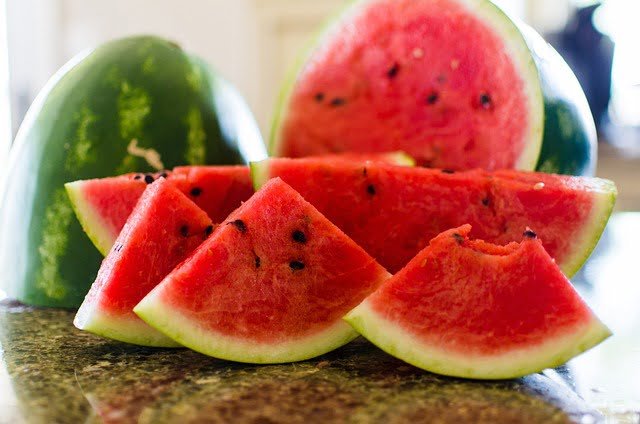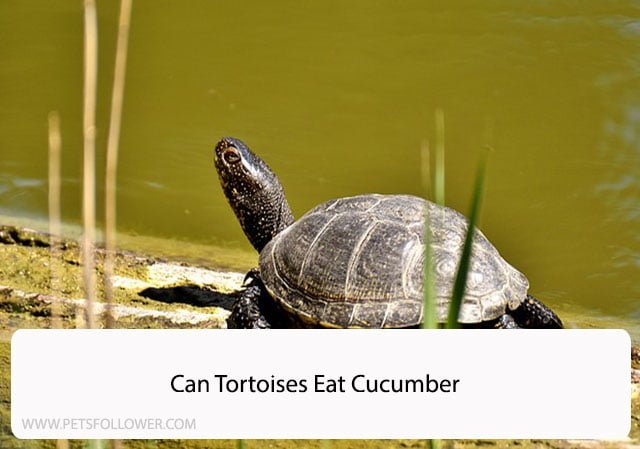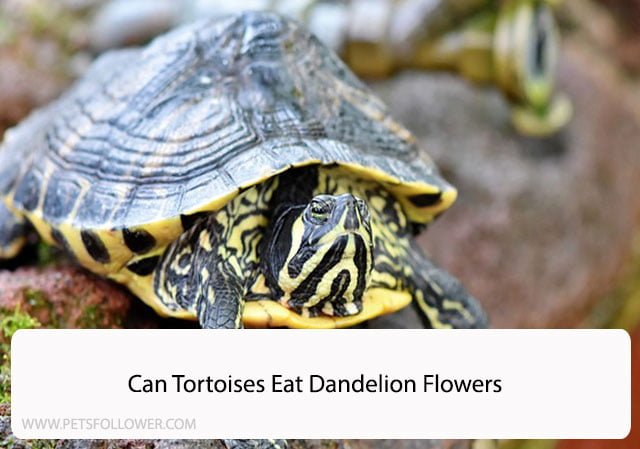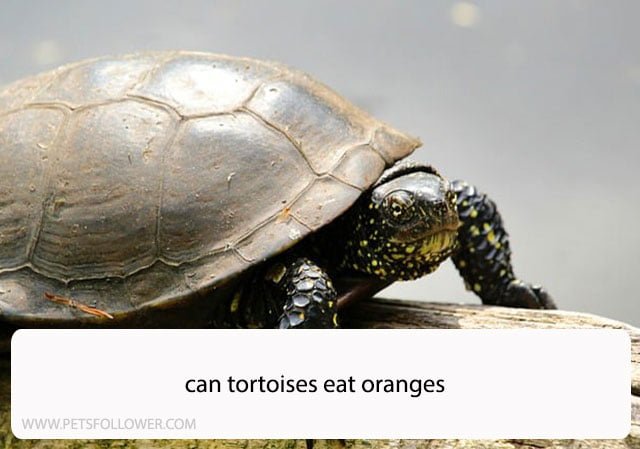Russian tortoises are a popular choice for reptile enthusiasts due to their small size and easy-to-care-for nature. As herbivores, they enjoy a variety of fruits and vegetables as part of their diet. One fruit that may come to mind is watermelon, but can Russian tortoises eat watermelon?
The answer is yes, Russian tortoises can eat watermelon. In fact, watermelon can be a healthy treat for them when fed in moderation. Watermelon is high in water content and contains vitamins A and C, which are beneficial for their health. However, it should not be a staple in their diet as it is high in sugar and can cause digestive issues if overfed.

Understanding Russian Tortoises’ Diet
Russian tortoises are herbivores, which means that their diet consists mainly of plant material. In the wild, they eat a variety of plants, including grasses, weeds, and leafy greens. In captivity, it is important to provide them with a diet that is similar to what they would eat in the wild.
One of the most important things to keep in mind when feeding a Russian tortoise is to provide a balanced diet. This means that their diet should include a variety of different types of plants, and should be high in fiber and low in fat. Some of the best foods to feed a Russian tortoise include:
- Dark leafy greens, such as kale, collard greens, and dandelion greens
- Other vegetables, such as carrots, squash, and bell peppers
- Fruits, such as strawberries, raspberries, and watermelon (in moderation)
It is also important to provide your Russian tortoise with a source of calcium. This can be done by dusting their food with a calcium supplement or by providing them with a cuttlebone to gnaw on.
When feeding your Russian tortoise, it is important to avoid certain foods. These include:
- Foods high in fat, such as avocado and nuts
- Foods high in oxalates, such as spinach and rhubarb
- Foods high in phosphorus, such as beans and grains
By providing your Russian tortoise with a balanced diet that is high in fiber and low in fat, you can help to ensure that they stay healthy and happy.
Can Russian Tortoises Eat Watermelon?
Watermelon is a juicy, refreshing fruit that many people enjoy during the summer months. As tortoise owners, we may wonder if we can share this treat with our Russian tortoises.
The good news is that Russian tortoises can eat watermelon. It is a safe and healthy snack for them, but it should only be given in moderation.
Watermelon is high in sugar and water content, which can cause digestive issues if given in large quantities. Additionally, the seeds and rind of the watermelon should be removed before feeding it to your tortoise.
When feeding watermelon to your Russian tortoise, it is best to cut it into small, bite-sized pieces. This will help prevent choking and make it easier for your tortoise to eat.
In summary, Russian tortoises can eat watermelon as a treat, but it should only be given in moderation and without the seeds and rind.

Effects of Watermelon on Russian Tortoises
Watermelon is a delicious fruit that many of us enjoy eating during the summer season. But, can Russian tortoises eat watermelon? The answer is yes, they can. In fact, watermelon can provide some benefits to Russian tortoises.
Watermelon is a good source of hydration for Russian tortoises. It contains about 92% water, which can help keep your tortoise hydrated. Additionally, watermelon contains some essential vitamins and minerals, such as vitamin C and potassium.
However, it is important to note that watermelon should not be the main source of food for your Russian tortoise. It should be given as an occasional treat, and in moderation. Overfeeding your tortoise with watermelon or any other fruit can lead to health problems such as diarrhea and obesity.
When feeding watermelon to your Russian tortoise, make sure to remove the seeds and rind. The seeds can be a choking hazard, and the rind is difficult for the tortoise to digest.
In conclusion, watermelon can be a healthy and tasty treat for your Russian tortoise if given in moderation. It can provide hydration and some essential vitamins and minerals. However, it should not be the main source of food and should be fed without seeds and rind.
How to Feed Watermelon to Russian Tortoises
When it comes to feeding watermelon to Russian tortoises, there are a few things to keep in mind. First of all, it’s important to remember that watermelon should be given as a treat and not as a regular part of their diet. This is because watermelon is high in sugar and can cause digestive issues if given in excess.
To feed watermelon to your Russian tortoise, start by cutting it into small, bite-sized pieces. Make sure to remove any seeds or rind, as these can be difficult for your tortoise to digest. You can also try mashing the watermelon to make it easier for your tortoise to eat.
It’s best to offer watermelon to your tortoise in moderation, as too much can lead to diarrhea and other digestive problems. We recommend offering watermelon once or twice a week, and only in small amounts.
Overall, watermelon can be a fun and healthy treat for your Russian tortoise, as long as it’s given in moderation and prepared properly.
Alternatives to Watermelon for Russian Tortoises
Russian tortoises are herbivores and enjoy a variety of fruits and vegetables. While watermelon is a great treat for them, there are other options that can be included in their diet as well. Here are some alternatives to watermelon for Russian tortoises:
- Leafy greens: Russian tortoises love leafy greens like kale, collard greens, and dandelion greens. These greens are packed with vitamins and minerals that are essential for their health.
- Berries: Blueberries, raspberries, and strawberries are great treats for Russian tortoises. These fruits are high in antioxidants and are a good source of fiber.
- Melons: Honeydew and cantaloupe are great alternatives to watermelon. These melons are also high in water content and provide a refreshing treat for your tortoise.
- Vegetables: Carrots, squash, and green beans are all great options for your Russian tortoise. These vegetables are high in fiber and provide essential nutrients.
It’s important to remember that treats should only make up a small portion of your tortoise’s diet. The majority of their diet should consist of leafy greens and other vegetables. Always consult with a veterinarian or reptile specialist before making any changes to your tortoise’s diet.
Conclusion
In conclusion, Russian tortoises can eat watermelon in moderation. Watermelon is a good source of hydration for tortoises, and it contains some essential vitamins and minerals. However, it should be given as a treat and not as a staple food in their diet.
It is important to note that watermelon should be given in small quantities and cut into small pieces to avoid choking hazards. Also, make sure to remove any seeds before feeding it to your tortoise.
Overall, while watermelon can be a tasty and nutritious addition to your Russian tortoise’s diet, it should be given in moderation and as part of a balanced diet that includes a variety of other foods.

Frequently Asked Questions
What fruits can tortoises eat?
Tortoises can eat a variety of fruits, including apples, bananas, berries, melons, and more. However, it’s important to remember that fruits should only make up a small portion of their diet and should be given in moderation.
Can marginated tortoises eat watermelon?
Yes, marginated tortoises can eat watermelon. However, as with any fruit, it should only be given in moderation and as part of a balanced diet.
Can Greek tortoise eat watermelon?
Yes, Greek tortoises can eat watermelon. However, like all fruits, it should only be given in moderation and as part of a balanced diet.
Can a tortoise eat watermelon?
Yes, tortoises can eat watermelon. However, it should only be given in moderation and as part of a balanced diet. It’s important to remember that fruits should only make up a small portion of their diet.
Can sulcata tortoises have watermelon?
Yes, sulcata tortoises can have watermelon. However, as with any fruit, it should only be given in moderation and as part of a balanced diet.
Can Hermann tortoise eat watermelon?
Yes, Hermann tortoises can eat watermelon. However, like all fruits, it should only be given in moderation and as part of a balanced diet.











